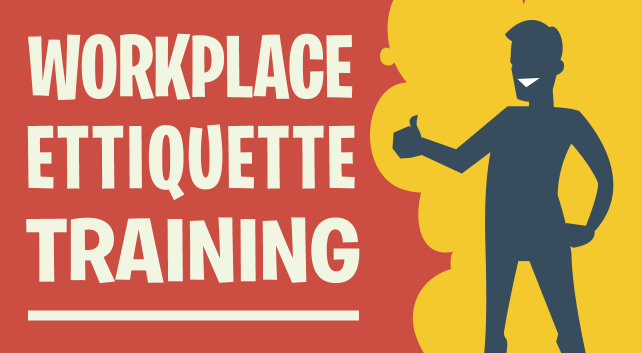- leadership
- Blog post
How about some basic training in workplace etiquette?
We talk in this blog about some pretty advanced training concepts and forms of employee learning, but sometimes what’s needed is basic training — in workplace etiquette.
That point emerges from a survey done by the Harris organization for CareerBuilder.com. The pollsters asked two groups — 2,138 hiring managers and HR professionals, and 3,022 full-time, private sector workers — what the main vectors of unproductive activity were in their workplaces.
And while fiddling around with technology, in the form of e-mails, texts and social media, did account for a lot of the lost time, there was another substantial time-waster: Various forms of thoughtless or even downright rude behavior.
Rampant rudeness?
For example, fully 42% of the employers surveyed said that gossip was the primary impediment to productivity in their workplaces. Some 24% mentioned noise by co-workers that prevented employees from concentrating, while 23% pointed to co-workers dropping by other employees’ offices, desks or cubicles uninvited, and 10% to people putting calls on speaker phone.
You’d think that not inflicting these kinds of distractions on others is pretty basic. It is. But sometimes, as we said earlier, basic training is what’s needed.
Don’t be shy to call a session or two to remind people about common office etiquette. If you know a consultant or industrial psychologist who specializes in good workplace behavior, that’s great.
But if you haven’t got access to someone like that, you might collect a list of pet productivity peeves from your people — anonymously — and discuss them in a departmental or team meeting. Confronted with bad behavior that they know very well they’ve engaged in, employees are likely to turn over a new leaf … at least for a while.
Other time wasters at work
Besides inconsiderate behavior, what else is sucking up workplace productivity? Here are the top five productivity killers, according to the poll:
1. Use of cellphones and texting
Presumably respondents were referring here to personal calls and texts. While no one expects employees to cut off all contact with the outside world during work hours, it’s reasonable to set an expectation that personal calls and texts be brief, and that more extensive conversations should happen on breaks or during the lunch hour. The whole office doesn’t have to hear how your date went last night.
2. Gossip
Gossip isn’t just a time waster; it’s corrosive. But management plays a role here as well. Gossip is a pretty reliable sign that employees are starved for information. If they’re not getting the news from their bosses, they’ll look for it elsewhere. Bosses who practice transparency don’t usually have a gossip problem.
3. The Internet
It’s hard not be distracted when you have the sum total of human knowledge at your fingertips. There are software solutions to help you monitor employees’ Internet use. If that seems too much like Big Brother, you might encourage employees to improve themselves. A new book from Jill Konrath offers strategies and apps that can help; it’s aimed at salespeople (for whom time is money) but is useful for anybody.
4. Social media
Same rules apply as for the Internet.
5. Snack breaks and smoke breaks
Breaks per se aren’t the problem; the problem is when they go on too long. In some environments, scheduled breaks are an option, but not always. Bosses might have to make a point of wandering through the break room at regular intervals — at least for a while — to discourage long gabfests. As for smoke breaks — well, it’s another reason to offer smoking-cessation programs, isn’t it?

Get a demo of all our training features
Connect with an expert for a one-on-one demonstration of how BTS Total Access can help develop your team.


